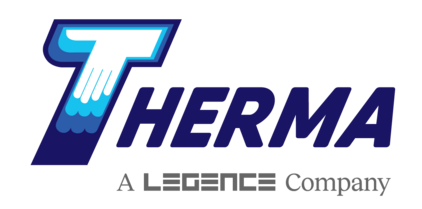by Ali Kriscenski
Information management drives business operations. Today’s world depends on reliable, accessible and secure information in-house and online. Data centers provide these services and Data Center Infrastructure Management (DCIM) encompasses IT best practice standards, long-term energy planning and resiliency preparedness. This article looks at the intricacies and requirements of DCIM, common issues and how to create a strategy towards efficient operations.
What are Data Centers?
Data centers are facilities that house networks of computing and storage devices that support applications and data distribution. They are typically comprised of routers, switches, firewalls, storage systems, servers and controllers. Data Centers can be utilized by companies that have a heavy reliance on IT, perform under strict data regulations or rely on significant intellectual property (IP).
Private data centers can benefit IT-driven companies by allowing them to fully customize the configuration of servers and storage devices. Organizations that are highly regulated, such as hospitals or banks, can utilize data centers to protect private data of information and customers. Companies that produce high levels of IP can use data centers to protect research and other valuable business development information.
Data Center Infrastructure Management (DCIM)
Data centers rely on physical equipment and devices, including racks, servers, connections, ports and the monitoring systems that track processes and conditions. DCIM encompasses the management of physical components, documentation, workflow, equipment mapping, environmental conditions and energy sourcing and efficiency. The management also includes staffing requirements to fulfill strategic operational goals.
 Top DCIM Issues
Top DCIM Issues
As epicenters of business information, the performance of data centers is a top priority. Maintaining accessibility and security of applications and information requires that a data center’s ‘uptime’ is consistent. Another priority is efficiency — of space, energy and personnel. When a data center is running efficiently, it supports the goal of secure, accessible business and customer information. It also provides more opportunity for the DCIM team to analyze system processes, identify needed upgrades and create strategies that can reduce business operating costs and improve energy efficiency.
DCIM Services
As specialty facilities, data centers require service from providers who understand the equipment, design and conditions that play a role in DCIM. Additionally, service providers need to be up to speed on evolving technology and storage strategies.
The right DCIM partner can assist with intelligent planning to allow your business to adjust as needed to changing technology. The design of your data center can be a part of services provided by your construction partner, integrating design-build by enlisting an expert that can identify energy load, cooling demand and other requirements of the physical system.
Energy management and utilities coordination can be complex with high-demand data centers. These aspects of the facility require professional guidance to navigate power requirements, backup power and regulations. Many aspects of data center services can be performed by specialists who are familiar with the design-build process, engineering and energy aspects. They can also ensure the facility communicates with larger-scope building systems such as building monitoring systems (BMS), fire and life safety.
 Resiliency Planning in DCIM
Resiliency Planning in DCIM
Superstorms and other weather disruptions have challenged data centers in recent years. The operational capacity of business operations depends not only on system functionality but also on energy supply. For some DCIM configurations, backup energy distribution is a viable option. Resiliency planning has become embedded in campus and business facilities with a focus on providing uninterrupted power supply (UPS) to avoid operational disruptions.
Benefits of a Professional DCIM Service Provider
With all of the operational details of DCIM, facility managers can benefit from enlisting professional services to assist with design-build, performance, environmental monitoring and energy planning. Service providers like Therma can provide system design assistance and technical expertise to create custom network configurations, monitoring solutions and energy strategies that meet operational goals.
Contact a Therma DCIM Professional today >>
Ali Kriscenski was trained in high-performance building design at Boston Architectural College. She has worked with leading architecture and construction firms in NYC and New England and served on the executive team at the Forest Stewardship Council International. She was the managing editor at Inhabitat and has worked pro bono for the Green Building Institute, ISEAL Alliance and Habitat for Humanity.
Sources
Data Center Frontier — Defining DCIM in 2019
Data Center Knowledge — How DCIM Improves Planning and Cuts Operational Costs







